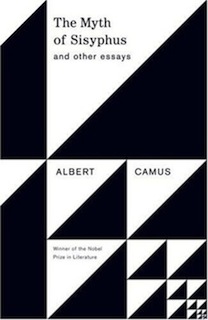13.12.2026
The Myth of Sisyphus: And Other Essays
By Albert Camus

By Albert Camus

The collection of stories published as Le Mythe de Sisyphe in 1942 was the second of the absurds. The work has been cited by critics as refined and carefully crafted. The collection stands as more literature than philosophy. Camus spent at least five years writing and editing the work. The polish is clear with the very first sentence: "There is only one really serious philosophical problem, and that is suicide."
According to Camus, suicide was a sign that one lacked the strength to face "nothing." Life is an adventure without final meaning, but still, in Camus' eyes, worth experiencing. Since there is nothing else, life should be lived to its fullest and we should derive meaning from our very existence. For Camus, people were what gave life meaning. However, in the moments following the realization that one will die, that one's descendants will die...in fact, that the earth will die, one senses a deep anxiety. And, as an atheist, Camus doubted meaning beyond this life.
"A world which can be explained, even through bad reasoning, is a familiar one. On the other hand, in a world suddenly devoid of illusion and light, man feels like a stranger." Isolated from any logic, without an easy explanation for why one exists, there occurs what some call "existential angst." While Camus did not use the phrase, it adequately describes the sensation. Even existentialists of faith struggle with creation, wondering why humanity exists when a Creator would not need mankind. Merely wanting to create something seems like a curious reason to create life. So, even for those of faith, the initial creation can be puzzling.